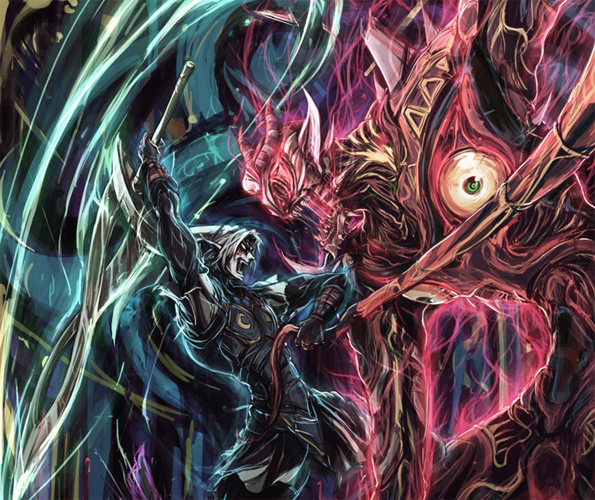The metagame artifacts from pf1e were my favorite way of implementing home rules. No, your wizard buddy didnt suddenly become comatose because their player had to do something IRL, the Scar of Destiny whisked them away at a bad time, just as it always threatens to do to you.
If one of my players can't make it and it's not possible to remove their character from the group storywise (meaning I'll have to control their character in combat), the character will immediately equip the "Talisman of Protection from DM Stupidity". What it does is:
- When a character holding this item dies, they fall unconscious instead and disappear into a demiplane. While in this demiplane, the character is stable at 0 hit points. When the party takes a long rest, the character will reappear near a random other player character as if they had also taken a long rest.
- If the player retakes control of the character while they are still in the demiplane, the character reappears next to another player character of their choice with 1 hit point.
- If all other player characters die, the character in the demiplane will die too. If the method of their original death would have left a corpse, the corpse will reappear adjacent to a random player character's body. Otherwise, they will disappear alongside the demiplane.
Basically, it makes them immortal unless a TPK happens.
Do you have a lore reason that explains it, or is it just a fourth wall breaker (for the greater good)?
For now it's just a fourth wall break because none of the players questioned it.
If they do ask, the lore reason is:
"DM" stands for Dunnusaidu Marudu, an ancient philosopher and the inventor of hedonism in this universe. When he died, he decided that even though he has experienced all the possible sensations that his current body and the current time period can provide, he still hadn't had enough. He had enough followers to become a minor god, and his spirit wanders the world, possessing random people for a short while to gain new experiences. He is not malicious which is why he created this talisman that appears on those possessed by him, he usually doesn't speak much when he does this, and he never makes major life decisions in the given body.
I love using magic items in place of house rules. It makes it easier for everyone when "house rules" are explicitly spelled out in an item description, and helps prevent players from being confused or surprised about which rules do and do not get enforced and in which way.
To contribute my own D&D 5e specific example: I like to have enchanted weapons that each have access to one or two battlemaster maneuvers per short rest. e.g. Quarterstaff of Tripping (trip attack) or Commander's Longsword (Commander's Strike). To keep it simple, I use the weapon's damage die as the superiority die.
Reminds me of how they incorporated weapon type-specific attacks in BG3. Stealing this one for sure.
So far, I've included in my current campaign: a utility belt that holds 3 healing potions allowing them to be used as a bonus action and a totem that allows them to reroll a hit die result of "1" on level up.
Reminds me of how they incorporated weapon type-specific attacks in BG3. Stealing this one for sure.
Yep, that whole weapon maneuvers system should be backported into base 5e stat, with slight modifications (i.e. they would be PB/LR instead of 1/SR, since short rests in the tabletop version are less regulated).
(Or alternatively they could auto-proc on a crit.)
Or, perhaps go the PF2e route and allow the player to tack on a weapon maneuver of choice if their attack roll exceeds the target AC by a certain amount (5?)
Too much math for 5e's design philosophy, and with bounded accuracy it would need a crit on the strongest enemies anyway.
The actual implementation of that system could take a number of forms:
- PB/LR for every class that is proficient with the given weapon. (The most basic implementation, but also screws over pure martials in favor of half casters.)
- PB/LR for every class that is proficient, but fighters regain PB/2 uses when they use Second Wind.
- PB/LR for every class that is proficient, PB/SR for fighters, monks, and barbarians.
- PB/LR for every class that is proficient, fighters regain all uses when rolling initiative.
- Etc...
Stealing other class' abilities is a great way to throw in some already-tested mechanics as cool unique magic items. Warning for anyone trying it though, don't steal another character's thunder; if one player chose to be a battle master then don't give everyone else their cool abilities too!
Yeah, there's some abilities that are just a lot of fun to have, but if your party doesn't have the right class, they wouldn't get the fun. An example would be druid shapeshifting (especially for non combat purposes). That's really great for story potential, thanks to being able to use it for spying and finding routes.
My DM gave me a quiver of endless arrows once, but didn't word it well so my Ranger started repeatedly pulling arrows out of it to see if it ever ran out. The bartender was pretty upset with him making a mess of his floor.
In that case, maybe it wasn't that great of a house rule to begin with!
I've been known to give my players a magic purse that makes coins weigh nothing before.


